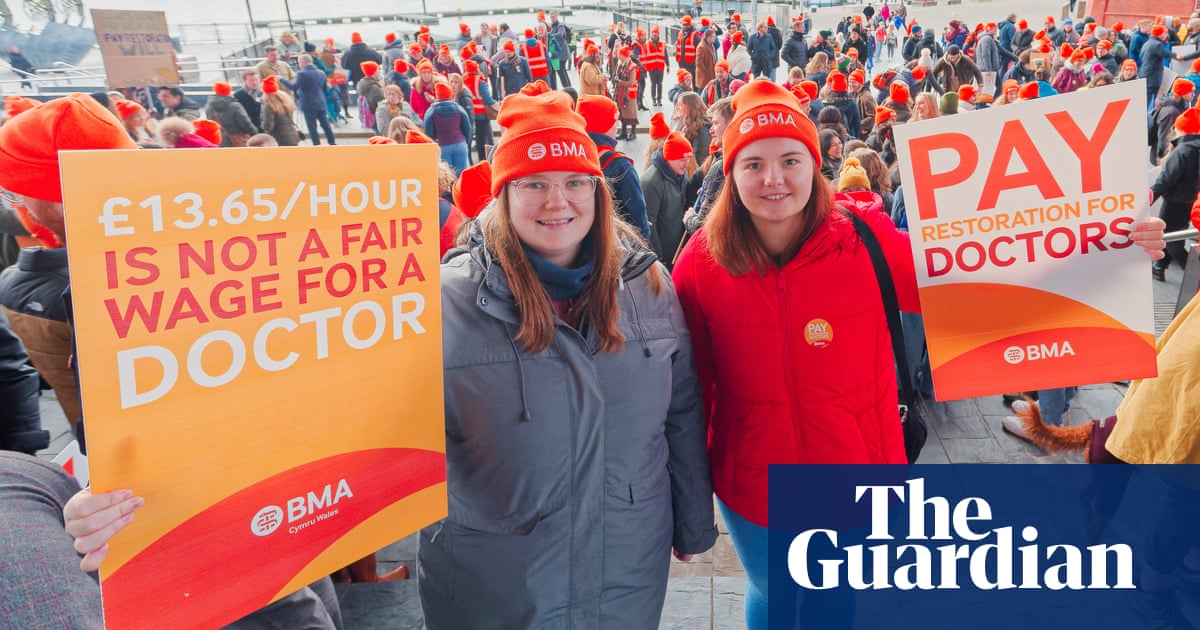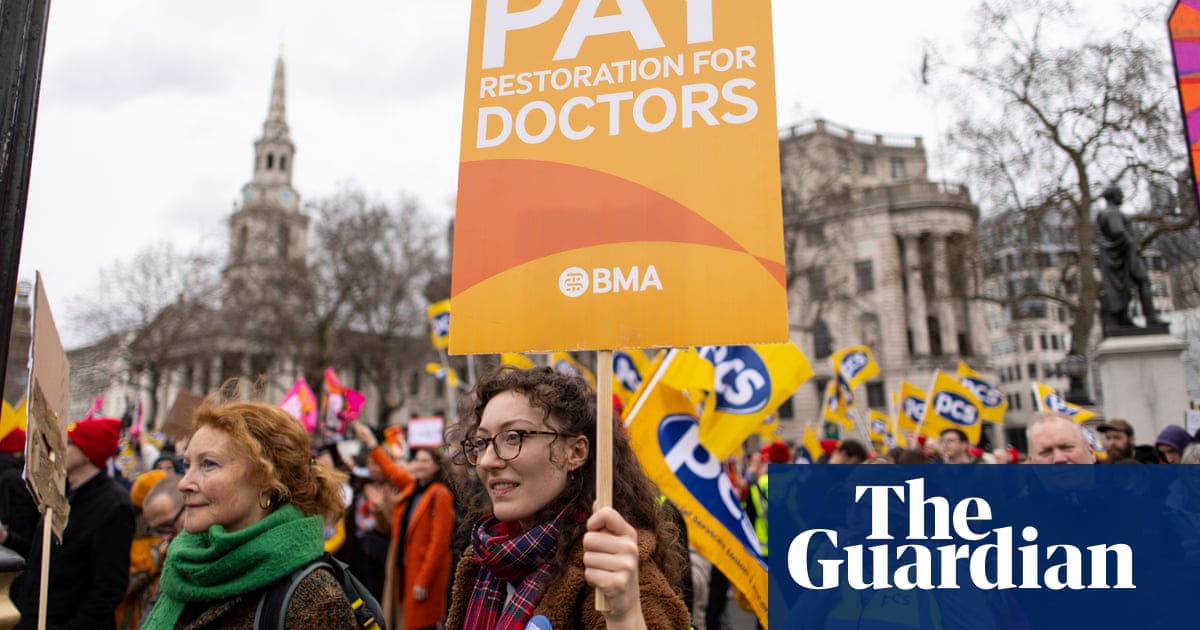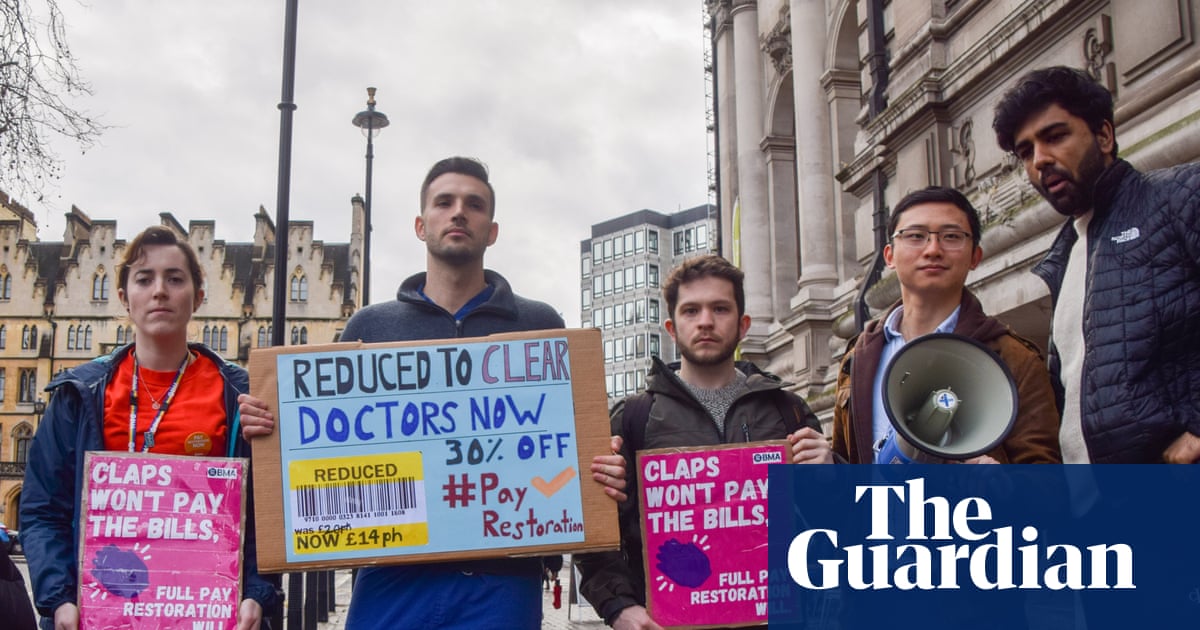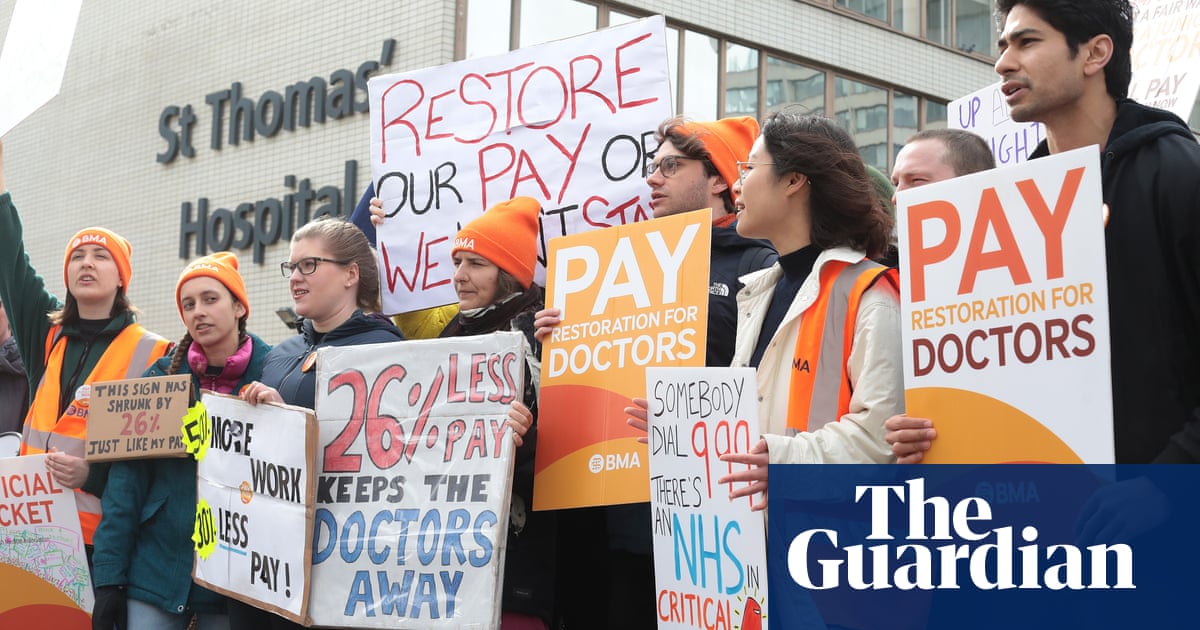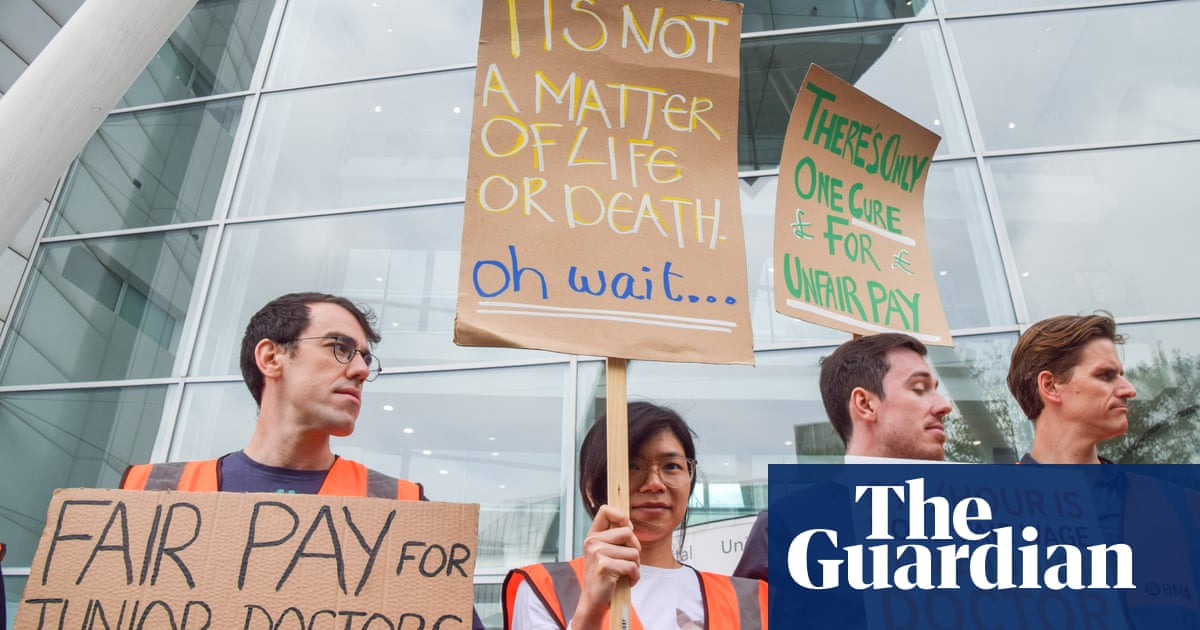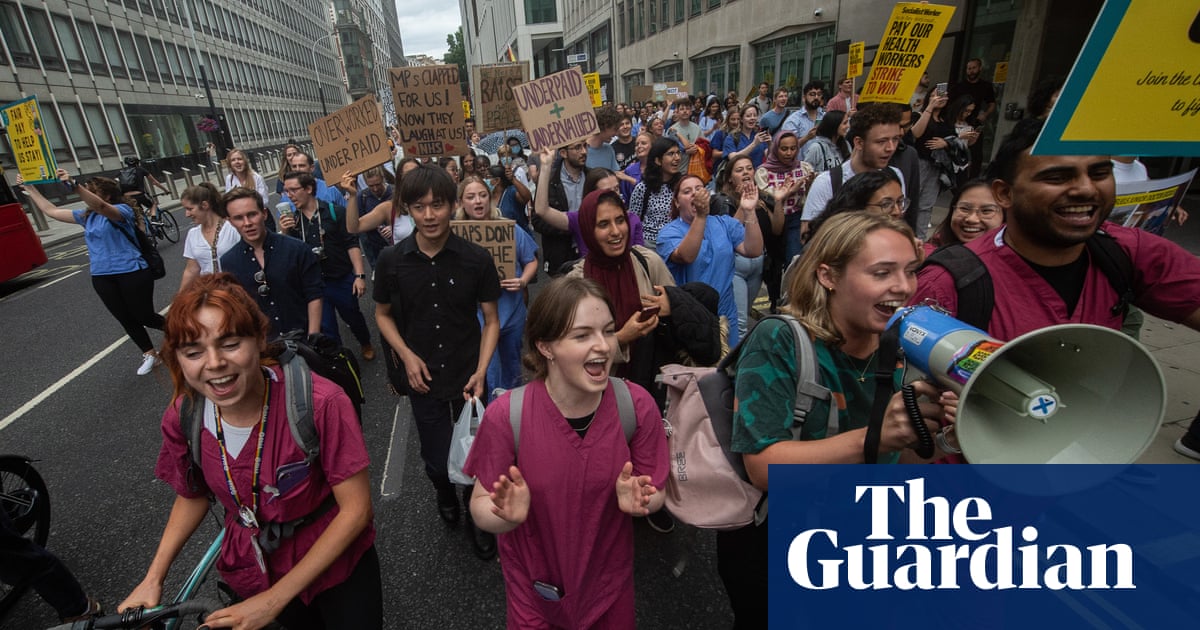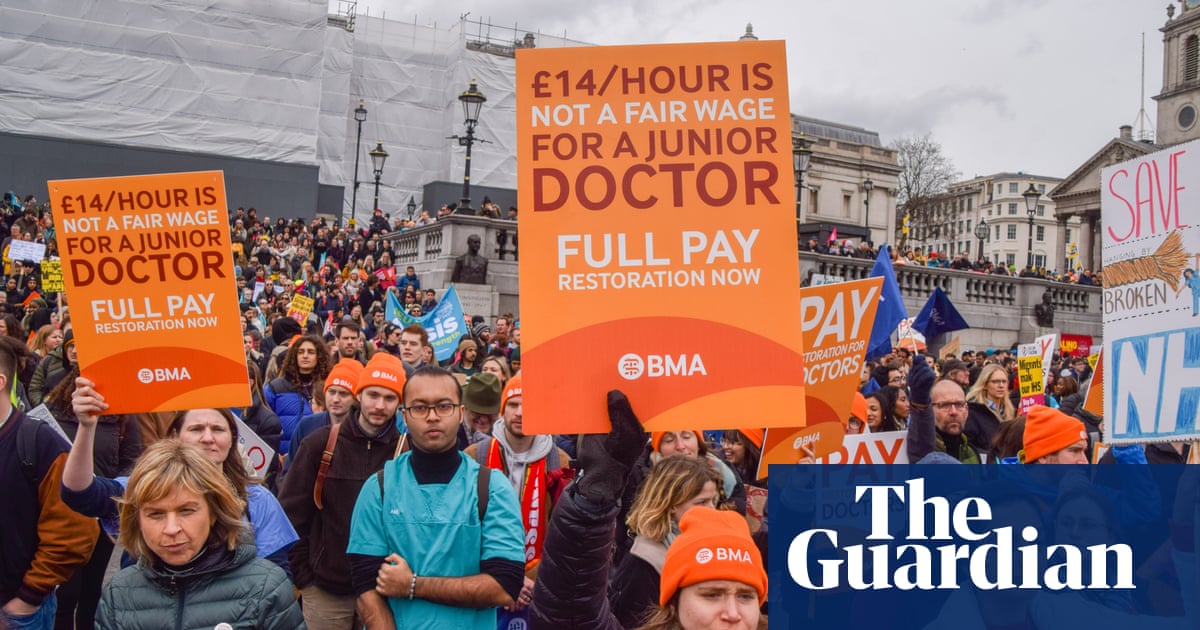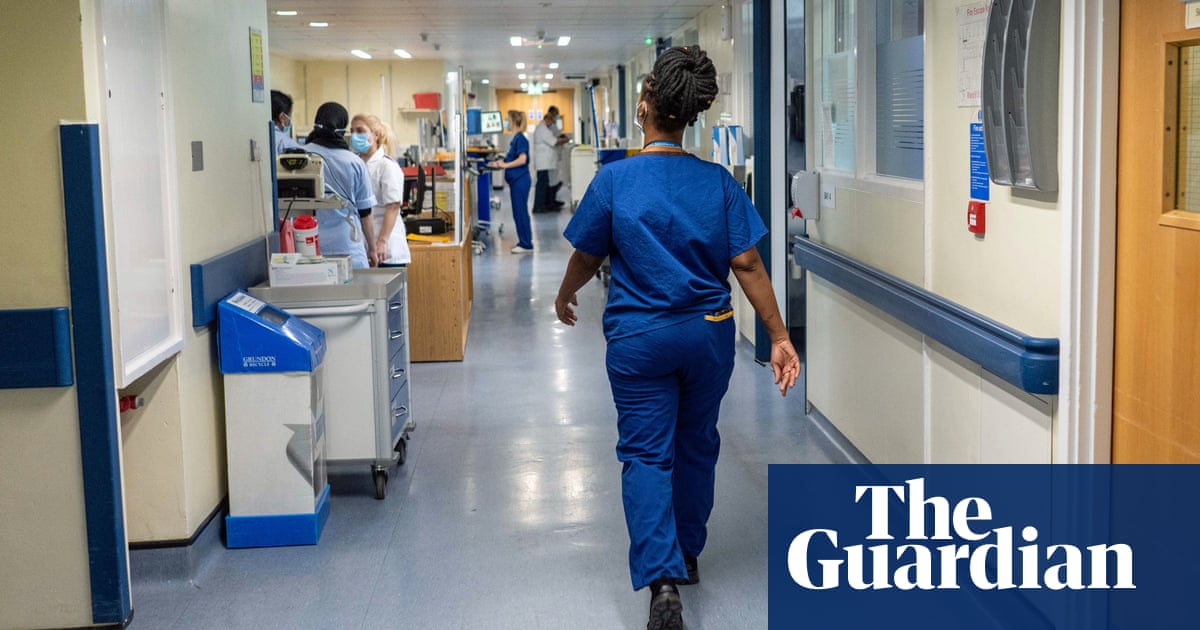
More than 110,000 patients had their NHS care cancelled because of the junior doctors’ strike that ended on Tuesday, figures show.
The impact of the six-day stoppage means the health service in England has now had to rearrange more than 1.3m appointments as a result of industrial action by doctors, nurses and other staff over the last 13 months.
“The longest strike in NHS history has led to unprecedented disruption for patients and their families, and while staff have planned extensively and worked tirelessly to keep patients safe, it comes once again with an enormous cost,” said Prof Sir Stephen Powis, the service’s national medical director.
The strike was the 10th that junior doctors have staged since March as part of their long-running campaign to win a 35% pay rise to address the big drop in their real terms income since 2008/09.
In all 113,779 appointments were cancelled. That total included 104,551 outpatient appointments and 9,228 elective – or non-urgent – operations. But the true number of appointments postponed is “likely to be even higher in reality”, Powis said, because many hospitals now scheduled less care on days when junior doctors would be on strike.
It will take hospitals “weeks and months” to recover from the six-day stoppage, Powis has said.
Junior doctors have gone on strike on 34 days over the last 10 months. The British Medical Association (BMA) junior doctors committee is planning to ballot its 47,000 members for the third time about strike action, which if backed by enough of them could result in action continuing until September.
NHS leaders want the BMA to start talking again to Victoria Atkins, the health secretary, about resolving the dispute, after five weeks of negotiations late last year ended in deadlock. The government has imposed a pay rise averaging 8.8% on junior doctors for the current financial year and offered a further 3%.
But the BMA has dismissed the extra 3% as too little to address junior doctors’ demand for “full pay restoration”, given they have experienced a 26.2% fall in the value of their salaries since 2008-09. It has urged Atkins to make a “final” offer that is “credible” enough for them to put to junior doctors in a ballot.
Matthew Taylor, the chief executive of the NHS Confederation hospitals group, said the 1.3m total of cancelled appointments was “a significant underestimate because trusts have pre-emptively avoided making appointments during periods of industrial action, so the actual number of cancelled appointments could be double this”.
The scale of disruption to scheduled care meant it would be “a long time” before hospitals had managed to rebook and provide the appointments postponed over the last week, Taylor added.
All the industrial action over the last 13 months has cost about £2bn so far, NHS England estimates. Paying staff to cover for those on strike has cost about £1bn while hospitals have lost about the same sum again because they have not been able to perform operations that NHS England pays them to do.
For example, Milton Keynes hospital lost £1m after it had to cancel 200 outpatient appointments and more than 100 operations during the six-day strike, which began last Wednesday. The £1m was from “a combination of having to pay consultants more to cover services and a number of patients we haven’t treated”, Prof Joe Harrison, its chief executive, told the BBC.
Meanwhile, Rishi Sunak has been criticised by the BMA and the factchecking charity Full Fact for wrongly claiming at prime minister’s questions on Wednesday that other groups of NHS staff, including “consultants and speciality doctors”, had already “reached a fair and reasonable pay settlement with the government”.
Both groups of doctors are still being balloted by the BMA to see if they accept what ministers have offered. Both have threatened to strike if their members reject the respective offers.





